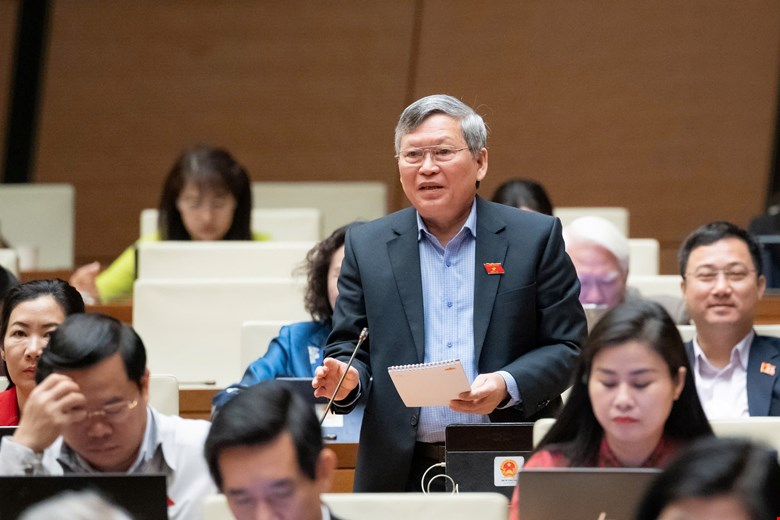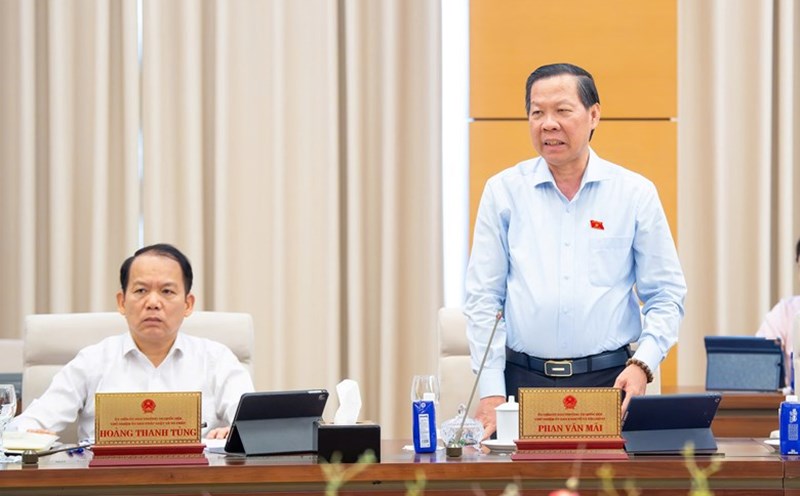Increasing the responsibility of leaders if approved in violation of the norms causes waste
On the morning of November 27, the National Assembly discussed the draft Law on Savings and Combat of Waste.
Delegate Nguyen Tam Hung (HCMC Delegation) said that the draft stipulates the responsibility of the head when receiving wasteful information but there is no mandatory deadline for handling.
To ensure accountability and prevent delays and avoidance, the delegate suggested that the drafting committee consider adding the principle of "must- process waste detection information within a specific time limit and publicize the handling results".
According to the delegate, when there is no mandatory time frame, the enforcement of the law will decrease sharply, reducing people's confidence in efforts to prevent waste.
The draft law stipulates the disclosure of contents on saving and combating waste, but does not require the disclosure of estimates, actual expenditures, and savings levels for each field and for each agency.
According to him, in reality, many current reports only mention how much savings are saved while not clearly stating the origin of savings, savings sectors, and active or passive savings.
Therefore, the delegate suggested that the Drafting Committee consider clarifying the mechanism for publicizing addresses of waste and adding requirements for publicizing estimates, actual expenditures, savings, excess rates, and responsibilities of relevant organizations and individuals.
"Because only when there is full and transparent publicity, with subjects and specific data, will there be pressure to improve the quality of management and strengthen supervision of the people and elected bodies," the delegate said.
Regarding the responsibility of the head, the delegate said that the draft law stipulates quite fully but does not clearly state the form of handling when the head intentionally approves projects and tasks that exceed the norms, exceed standards, exceed the regime to legalize waste.
"This is the biggest gap at present because many waste violations are disguised under the correct administrative decision. I suggest that the drafting committee consider adding the principle: All approvals that violate norms, standards, and regimes that cause waste must consider the responsibility of the head at a serious increase level," said the delegate.
Regarding exemption and reduction of legal responsibility, the delegate agreed with the protection of cadres who dare to think and dare to do, but suggested only exemption of responsibility when: The initiative must come from the common interest; there is a pre-examination of risks in writing by the competent authority; the implementation process is public and transparent.
"Thus, both protecting innovation cadres and ensuring institutional safety, not creating loopholes to legalize waste," said the delegate.

Prohibiting people fighting against waste from providing false information
Delegate To Van Tam (Quang Ngai Delegation) said that the draft law has stipulated prohibited acts in handling information on waste detection and protection of those fighting against waste. However, there is no regulation prohibiting the behavior of people fighting against waste.
Therefore, according to him, it is advisable to study and supplement regulations to prohibit the behavior of people fighting against waste in the direction of prohibiting the provision of false and wasteful information, fabricating information about waste, even inflating information about waste, acts of inciting, inciting, and forcing others to provide anti-waste information.
Delegate To Thi Bich Chau (HCMC Delegation) proposed to add a requirement to report on the results of annual thrift and anti-waste implementation, stipulating the responsibility of the head if the program does not achieve the target.











